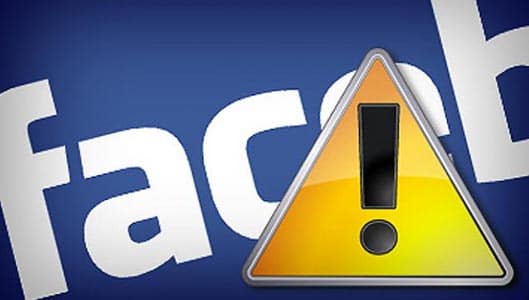3 things that make a Facebook warning useful
Social websites like Twitter and Facebook are a fantastic way to share important information. This can include warnings and advice. Never before has sharing information been so easy, quick and viral.
However the online social media “revolution” is still in its early days, and we’re still very much learning how to get a handle on it all. As a result, amongst the cyber traffic are plenty of well meaning but ultimately useless social media warnings.
Whether warning about a trending crime, the latest Internet scam, a relevant news story, product recalls or anything else, social media can be a good place to spread this kind of information.
We discuss some tips on how to author an effective warning or caution, making it accurate, efficient and useful. In the process you can then decide what warning messages penned by others are worth circulating or deleting.
So besides containing, well, accurate information, here are 3 other things that every good warning on social media should have.
Location, location, location
Often social media warnings are aimed at people within a specific locale, such as missing children or criminal activity. Of course sites like Facebook cover the entire world, meaning these messages are irrelevant to most people who may come across them.
For example, a Facebook user in Canada would probably not need to spread a message to their friends about a missing child in Manchester, UK.
So we generally recommend circulating warnings that include the location of where they are relevant. This makes them more useful since users will know where the warning is relevant, and it also means they can spread that message is they – or a number of people on their friends list – are located there. Users who do not live [near] there nor know people from that specific location will know that spreading the message to their friends would be ultimately pointless.
Date
Similar to a warning without a location, a warning without a date can be equally useless considering how often warning messages continue to circulate well past their sell-by-date.
Messages frequently continue to spread between users way past the date to when they were relevant, thus including a date is akin to including an expiry date on a bottle of milk. I.e. the user knows a message dating back 2 years shouldn’t be touched.
Source
Arguably the most important aspect of any warning is a reputable source. Warning messages will ultimately be passed from user to user, so when any specific person reads the warning they will have no idea as to who the original author was. Thus this means the person reading the warning message has no reason to trust the legitimacy of the warning.
This is why we generally recommend only trusting warning messages that cite legitimate sources. For example a message about missing children can link to an amber alert or a local news article. Information about criminal activity could for example link to a local police alert.
Sources not only help with proving that a message is legitimate, but will also help readers determine if a warning is outdated or not relevant to them.
Creating and circulating warning messages that include all 3 of these attributes will go a long way into helping stem the large amounts of [often damaging] misinformation that circulates Facebook every day.
Is there anything that you would like to see included in a warning message? Let us know.
Keep up-to-date with all our latest articles. Follow us on Facebook, Instagram and Twitter.
Continued below...
Thanks for reading! But before you go… as part of our latest series of articles on how to earn a little extra cash using the Internet (without getting scammed) we have been looking into how you can earn gift vouchers (like Amazon vouchers) using reward-per-action websites such as SwagBucks. If you are interested we even have our own sign-up code to get you started. Want to learn more? We discuss it here. (Or you can just sign-up here and use code Nonsense70SB when registering.)
Become a Facebook Supporter. For 0.99p (~$1.30) a month you can become a Facebook fan, meaning you get an optional Supporter Badge when you comment on our Facebook posts, as well as discounts on our merchandise. You can subscribe here (cancel anytime.)
